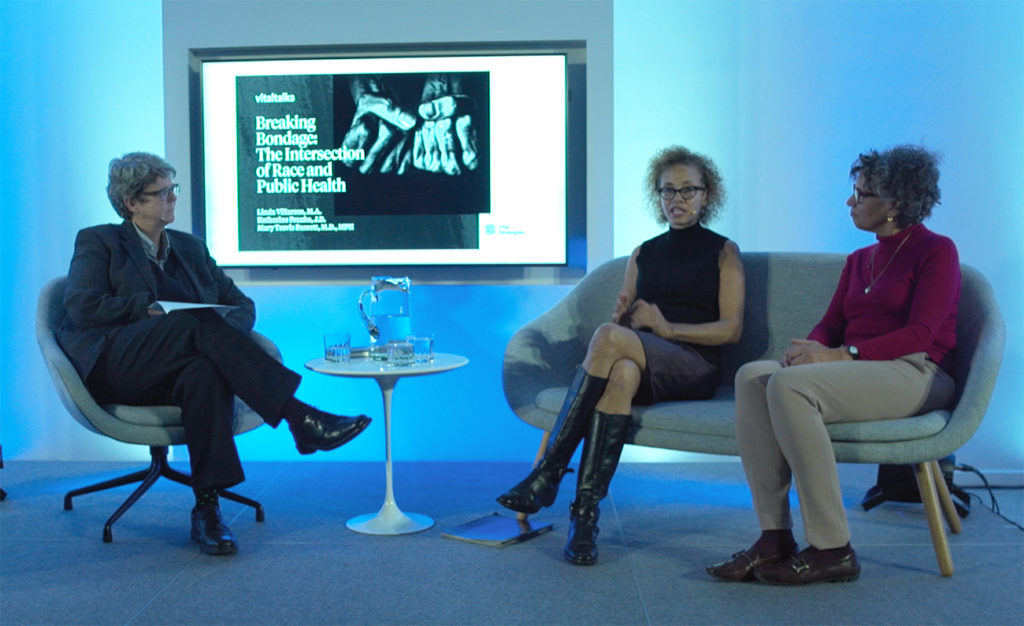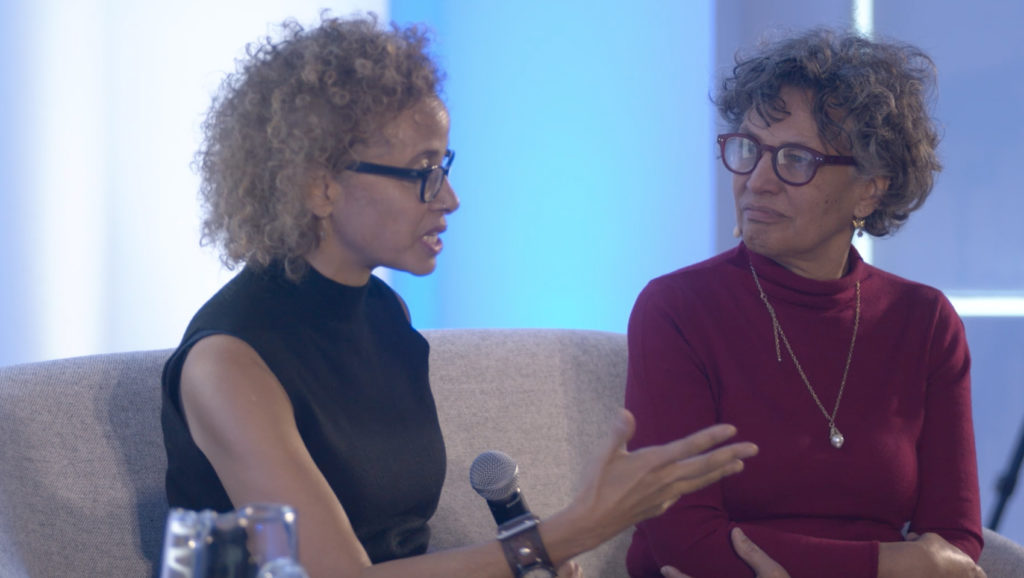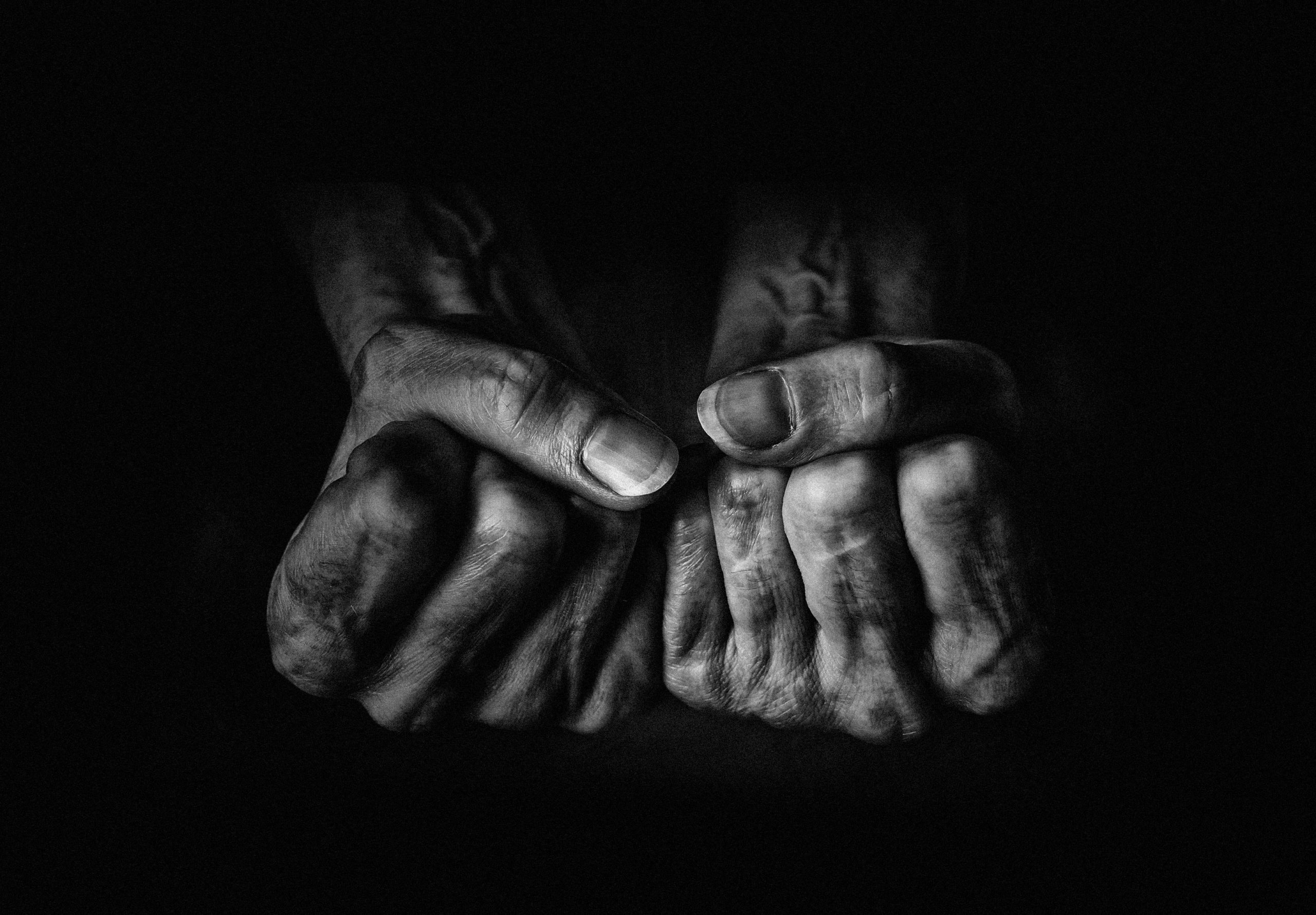By Brianna Paden-Williams, Public Relations Associate, Policy, Advocacy and Communication Division
“Racism is so universal in this country, so widespread, and deep-seated, that it is invisible because it is so normal.” – Shirley Chisholm
The legacy of slavery remains today, deeply rooted in American history. Since 1619, when the first enslaved Africans were kidnapped and shipped to Jamestown, Virginia, to the present day, slavery has shaped the lives of black Americans. This legacy is evident when examining public health outcomes in this country. Unequal access to quality health care and decades of legal, social and economic barriers mean that black Americans continue to pay the price of structural racism with their health, as evidenced by shorter life spans, poorer outcomes in medical treatment, staggeringly high maternal mortality rates and more.
“A black woman with a master’s degree is more likely to die or almost die from childbirth than a white woman with an eighth-grade education.” said Linda Villarosa, a Contributing Writer for the New York Times, Program Director of the Department of Journalism at City College of New York and Assistant Professor of Media and Communication Arts at City College of New York.
- An estimated 10 to 12 million enslaved Africans were transported to the Americas from 16th to 19th century in the transatlantic slave trade.
- In New York City, a black American has a 50% higher chance of dying prematurely before the age of 65 than a white American man.
In November 2019, Vital Strategies hosted a Vital Talks event focused on the legacy of slavery, the history of race-based health inequities and the implications for public health. Our distinguished speakers shared their work and discussed how organizations, government officials, advocates and communities can break the bondage that has kept millions of Americans without access to quality health systems, and ensure that everyone has the right to a healthier, longer life.
Visit vitalstrategies.org/vitaltalks to watch the full recording of the Nov. 25 Vital Talks event, which featured Mary Travis Bassett, Director of the François-Xavier Bagnoud Center for Health and Human Rights at Harvard University, Linda Villarosa, Contributing Writer for the New York Times, Program Director of the Department of Journalism at City College of New York and Assistant Professor of Media and Communication Arts at City College of New York. The event was moderated by Katherine Franke, Sulzbacher Professor of Law, Gender, and Sexuality Studies at Columbia University.
Mary Travis Bassett began to look at public health through a social justice lens while living in Zimbabwe for 17 years and witnessing health inequalities related to the HIV/AIDS epidemic and the structural issues that left marginalized communities disproportionately at risk of dying. When she returned to the United States, she saw the same problems in America’s public health system.
“The goal of maintaining blacks in an economically productive but socially unfree state never went away after the end of slavery,’” she said. “It was followed by the black code, Jim Crow and then mass incarceration.”
The goal of maintaining blacks in an economically productive but socially unfree state never went away after the end of slavery. It was followed by the black code, Jim Crow and then mass incarceration.”
Mary Travis Bassett
Director of the François-Xavier Bagnoud Center for Health and Human Rights at Harvard University
As the health commissioner of New York City from 2014 to 2018, Bassett dedicated her tenure to racial and social equity. She worked to ensure that every New York City neighborhood supported the health of its residents, with the goal of closing gaps in population health across the city.
“The racial disparity we see in health and life expectancy are a measure of the extent to which people of African descent have never been granted full citizenship in the United States,” she said. “We’ll know we’ve ended racial inequality in the United States, when we no longer see racial differences in health statistics and life expectancy.”

Linda Villarosa contributed to the 1619 Project, an ongoing initiative from The New York Times Magazine that examines the legacy of slavery in America. Her article, “Myths about physical racial differences were used to justify slavery—and are still believed by doctors today,” focused on the myths of racial health differences that are still present as a consequence of slavery including the idea that black people have low lung capacity and a high pain tolerance.
These myths live on today and continue to negatively affect the health care that people of color receive. According to Villarosa, “the modern-day spirometer [a medical device that measures lung capacity] has a race correction that assumes black people have a 10 to 15 percent lung inferiority.”
“This is an old problem,” said Villarosa. “Part of it is discrimination in our health care system.”
This is an old problem. Part of it is discrimination in our health care system.”
Linda Villarosa
Contributing Writer for the New York Times, Program Director of the Department of Journalism at City College of New York and Assistant Professor of Media and Communication Arts at City College of New York
There are doctors that still believe the myths of racial differences and this continues to shape how black people receive treatment and care. In Villarosa’s 1619 piece, she noted a 2016 survey that showed that half of the 222 doctors surveyed endorsed at least one myth about physiological differences between black people and white people.
“We have a lot of work to do in this area especially if the myths are believed by not just current physicians, but physicians to be.”

“Reparations were owed in a backward-looking sense as repair for the horror of enslavement,” said Katherine Franke, “but also, as a forward-looking matter that you could never be a free people without material resources.”
Reparations were owed in a backward-looking sense as repair for the horror of enslavement but also, as a forward-looking matter that you could never be a free people without material resources.”
Katherine Franke
Sulzbacher Professor of Law, Gender, and Sexuality Studies at Columbia University
Franke is among the nation’s leading scholars writing on law, sexuality, race and religion, drawing from feminist, queer and critical race theory. Her second book, “Repair: Redeeming the Promise of Slavery’s Abolition,” makes the case for reparations for black Americans due to the damage caused by the legacy of slavery in the United States.
“I make a big distinction in the book between being freed and being free,” said Franke. “We continue to live with that legacy today. We haven’t fully granted freedom to black people. We have freed them. Racial health disparities are evident of the fact that black people aren’t fully free.”
Katherine Franke is among the nation’s leading scholars writing on law, religion and rights, drawing from feminist, queer, and critical race theory. Follow Katherine on Twitter: @ProfKFranke
With more than 30 years of experience in public health, Dr. Mary Travis Bassett has dedicated her career to advancing health equity. Follow Mary on Twitter: @DrMaryTBassett
Linda Villarosa is a contributing writer to The New York Times Magazine, where she covers public health, race, and social justice topics. She also runs the journalism program at The City College of New York in Harlem and teaches media studies. Follow Linda on Twitter: @lindavillarosa
